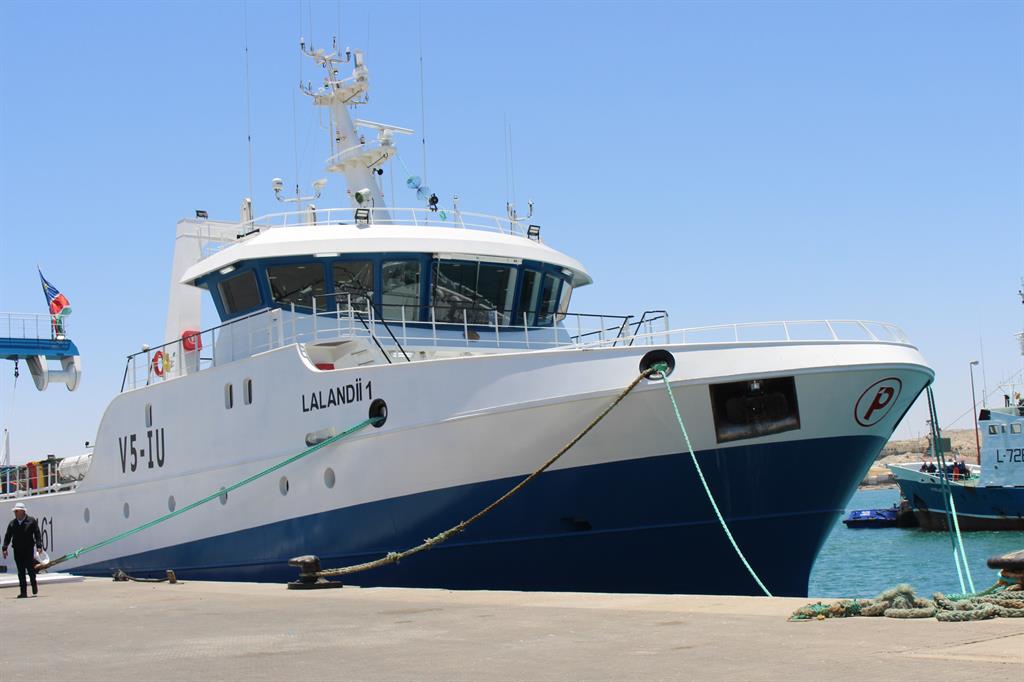Fishing becoming a weak contributor to GDP
According to the National Hake Association, the industry employs about 15 500 citizens, with about 12 000 being employed by the local hake sub-sector alone.
THEO KLEIN
The agricultural industry is the sixth largest industry in our economy, but it is the biggest employer, employing about 23% of the labour force. Within the agricultural industry, the fishing industry is the second largest sub-sector on average, compared to livestock and crop farming.
According to the Namibia Statistics Agency (NSA) national accounts, production in the fishing industry has been on a declining trend since 2013. Growth in this sector is expected to remain relatively flat going forward, potentially negative in the long run. Most industry players currently operate at full Maximum Sustainable Yield (MSY) and have reached the Total Allowable Catch (TAC) levels set by government. This means that growth in the industry will not come from additional players in the industry catching more fish, but rather increased value addition activities or processes being established in Namibia.
This suggests existing industry players need to invest in establishing factories and processing plants to add value to their fish products before exporting to foreign markets or selling to the local market, to drive growth and indirect job creation in other sectors linked to the fishing value chain. Additional fishing quotas issued in 2020 reduced the market share of each industry player, thereby lowering profits and increasing the time trawlers stay idle for each player. In essence, each industry player operates a smaller market share, but the size of the market remains unchanged. The fishing industry is expected to grow 2.8% in 2021 and 3.6% in 2022, compared to -9.4% in 2020.
Employment
The fishing industry has become a weaker contributor to the Namibian economy since 2009. While providing a basic necessity, the importance of the sector is on a downward trend and will continue to become a smaller part of our economy if value addition processes are not set up locally, thereby creating additional jobs along the value chain. Currently, the industry employs about 15 500 citizens, with about 12 000 being employed by the local hake sub-sector alone according to the National Hake Association. This excludes indirect jobs created by or dependent on the fishing industry.
While some value addition services are offered in Namibia in certain sub-sectors, much untapped potential remains. For example, fresh squid caught by vessels off the Falkland Islands and frozen whole on board arrive in Walvis Bay where they are cleaned, and the table ready tubes and tentacles are packed for consumer markets in Europe.
Taking the above into consideration, a great deal of investment is needed by local fish producers. Since 2018, net investment in the fishing industry has been on a decline. Net investment in this industry has decreased by 46.0% on an annualized basis for the last two years. Despite interest rates being low, business confidence remains low and prevents current industry players from taking on risk to start value addition activities. Due to the additional quotas issued in 2020, companies who invested in vessels and processing plants see lower returns.
The agricultural industry is the sixth largest industry in our economy, but it is the biggest employer, employing about 23% of the labour force. Within the agricultural industry, the fishing industry is the second largest sub-sector on average, compared to livestock and crop farming.
According to the Namibia Statistics Agency (NSA) national accounts, production in the fishing industry has been on a declining trend since 2013. Growth in this sector is expected to remain relatively flat going forward, potentially negative in the long run. Most industry players currently operate at full Maximum Sustainable Yield (MSY) and have reached the Total Allowable Catch (TAC) levels set by government. This means that growth in the industry will not come from additional players in the industry catching more fish, but rather increased value addition activities or processes being established in Namibia.
This suggests existing industry players need to invest in establishing factories and processing plants to add value to their fish products before exporting to foreign markets or selling to the local market, to drive growth and indirect job creation in other sectors linked to the fishing value chain. Additional fishing quotas issued in 2020 reduced the market share of each industry player, thereby lowering profits and increasing the time trawlers stay idle for each player. In essence, each industry player operates a smaller market share, but the size of the market remains unchanged. The fishing industry is expected to grow 2.8% in 2021 and 3.6% in 2022, compared to -9.4% in 2020.
Employment
The fishing industry has become a weaker contributor to the Namibian economy since 2009. While providing a basic necessity, the importance of the sector is on a downward trend and will continue to become a smaller part of our economy if value addition processes are not set up locally, thereby creating additional jobs along the value chain. Currently, the industry employs about 15 500 citizens, with about 12 000 being employed by the local hake sub-sector alone according to the National Hake Association. This excludes indirect jobs created by or dependent on the fishing industry.
While some value addition services are offered in Namibia in certain sub-sectors, much untapped potential remains. For example, fresh squid caught by vessels off the Falkland Islands and frozen whole on board arrive in Walvis Bay where they are cleaned, and the table ready tubes and tentacles are packed for consumer markets in Europe.
Taking the above into consideration, a great deal of investment is needed by local fish producers. Since 2018, net investment in the fishing industry has been on a decline. Net investment in this industry has decreased by 46.0% on an annualized basis for the last two years. Despite interest rates being low, business confidence remains low and prevents current industry players from taking on risk to start value addition activities. Due to the additional quotas issued in 2020, companies who invested in vessels and processing plants see lower returns.





Kommentaar
Republikein
Geen kommentaar is op hierdie artikel gelaat nie